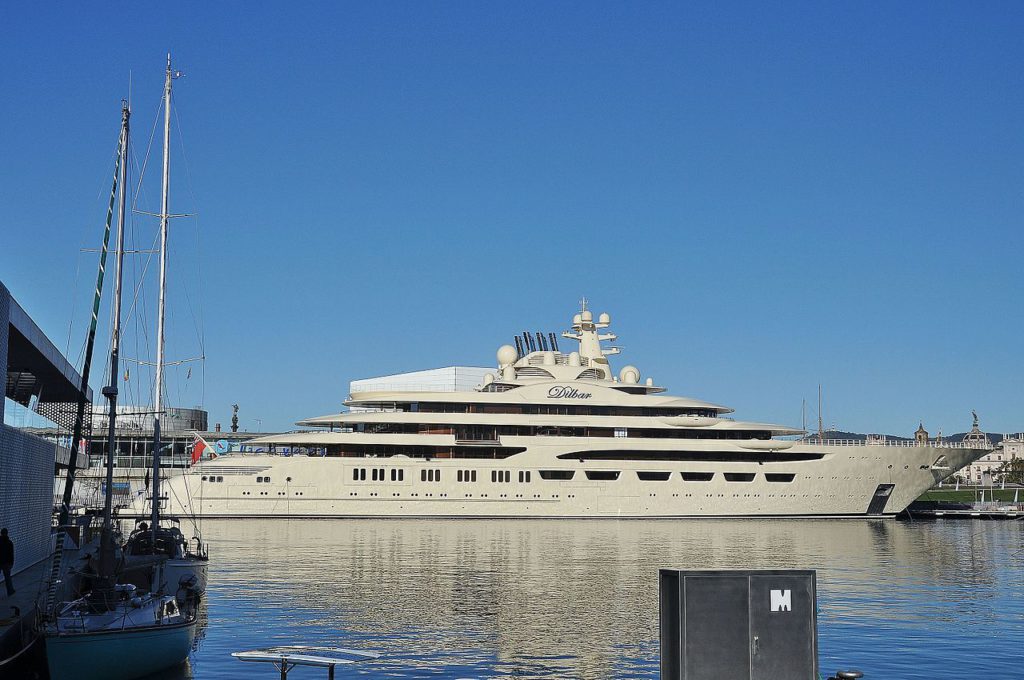With eye on metal prices, US cautious on possible sanctions of Usmanov companies

The United States and its allies will look for ways to impose sanctions on companies under Russian metals and telecoms tycoon Alisher Usmanov’s control without raising the price of commodities, a U.S. Treasury Department spokesperson told Reuters on Tuesday.
The United States last week imposed sanctions on the billionaire as part of several rounds of measures Washington has taken, including against Russian President Vladimir Putin, after Russian forces invaded Ukraine in the biggest assault on a European state since World War Two. Moscow calls the assault a “special operation.”
The action, similar to sanctions imposed by the European Union on Usmanov, blocked his assets, including his yacht and private jet.
But the Treasury Department left out companies controlled by him from the sanctions by issuing what is known as a general license. The spokesperson said the Treasury’s sanctions align with those imposed by international partners, including the EU.
“To prevent asset flight, the U.S. and EU acted quickly to block Usmanov’s personal assets. Treasury’s designation of Usmanov puts us in a position to now target companies under his control,” said the spokesperson on condition of anonymity.
“We are going to work with our allies and partners to design a set of mitigations that allow us to target companies under Usmanov’s control without driving up the price of commodities like nickel, which could inadvertently enrich him,” the spokesperson said.
Prices of nickel started to rise after major producer Russia invaded Ukraine and Western sanctions threatened supply. Trade in London of the industrial metal was suspended on Tuesday after prices doubled within hours.
Russia supplies about 10% of the world’s nickel.
Washington trade lawyer Doug Jacobson said that under the license issued by Treasury, in the event that Usmanov owns 50% or more of a company, it is not blocked unless separately designated.
Ownership of 50% or more of a company by a party under U.S. sanctions is generally the threshold at which the company is also generally blocked.
But Usmanov’s property, including his aircraft, yacht and any bank accounts or property held in the United States, are still blocked under Thursday’s measure, Jacobson said.
“They are separating him from his business interests as a result of that action,” he said. “They’re trying to avoid a Rusal situation, I would imagine.”
In 2018, the U.S. Treasury imposed sanctions on Russian billionaire Oleg Deripaska, Rusal, En+ and other companies in which he owned stakes, citing “malign activities” by Russia, prompting turmoil in global aluminum markets.
The United States later lifted the sanctions on En+ and aluminum giant Rusal.
“We have said repeatedly that we will calibrate our sanctions to cause maximum pain to Putin and his cronies while minimizing spillover to the global economy,” the Treasury spokesperson said on Tuesday.
Usmanov, founder of Russian mining company Metalloinvest, owns 49% of USM Holdings, the Treasury said in a statement last week. USM’s assets include Metalloinvest, mobile operator MegaFon and Russia’s largest copper deposit operator, Udokan Copper, among others, according to its website.
Some of Usmanov’s investments in U.S. and Chinese tech companies have been made through Yuri Milner’s DST and his own company USM, according to media reports. He is also an investor in Silicon Valley VC fund Rising Tide, according to filings with the U.S. Securities and Exchange Commission.
In a statement to Reuters, a DST spokesperson said Usmanov’s last investment in DST Global funds was in 2011 and DST Global funds have not raised capital from Russian investors since that year. He added that all but one of the portfolio companies in the DST fund were exited, and the remaining company is illiquid and of limited value.
USM and Rising Tide did not immediately respond to requests for comment.
Usmanov also acquired Russian newspaper Kommersant, a leading business broadsheet, in 2006.
(By Daphne Psaledakis, Echo Wang and Pratima Desai; Editing by Mary Milliken and Alistair Bell)
{{ commodity.name }}
{{ post.title }}
{{ post.date }}




Comments